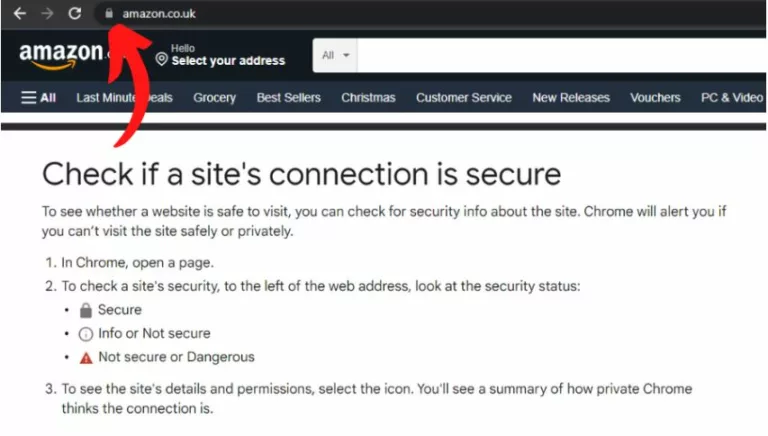As Black Friday and Cyber Monday approach, so does the increase of purchase scams. Unsuspecting victims are conned out of millions attempting to secure a bargain. Last year, Black Friday scams increased by 22 per cent, with shoppers losing an average of £970.
National Cyber Security Centre recently released a statement encouraging shoppers to stay vigilant as scammers are rife this Black Friday season. Read about some popular Black Friday scams and how you can avoid them.
Phishing Scams
Phishing scams are a prevalent form of email scams, designed to trick individuals into divulging sensitive personal information. Black Friday, being a prime shopping occasion, becomes an opportune time for phishing scams to take place.
In a typical phishing scenario, scammers will pose as legitimate brands like Amazon and send deceptive emails or messages often claiming that there has been an issue with the person’s account or a recent purchase. In the case of Black Friday, scammers will also entice victims with fraudulent Black Friday deals, linking them to a website that resembles a legitimate platform. Users are then prompted to enter sensitive information such as usernames, passwords, and card details, unknowingly handing it over to sophisticated fraudsters.
How to Avoid: Authentic communication from retailers will never ask for sensitive information over email or direct message. Therefore, make sure to only process payments on the retailer’s secure payment system. You can also verify the legitimacy of a website by checking that is has a padlock icon in the URL bar and by using an online tool to run a search on the domain name.

Vishing Scams
Vishing, short for voice phishing, is a phone scam which manipulates victims into sharing sensitive information and ultimately being defrauded of their money. As Black Friday approaches, vishing scams are more prevalent, preying on those who have been busy shopping online.
Similar to phishing, in a vishing scam, fraudsters will pose as legitimate organisations, such as a retailer or the bank and claim that the person over the phone has a pending payment which must be reimbursed immediately. Some vishing attempts involve leaving voicemails instructing victims to call back a specific number, which then leads to a fake support line where personal information is solicited.
Vishing scammers may even go as far as cloning the phone number and caller ID of a legitimate organisation, tricking the victim into believing that they are reputable.
How to Avoid: Legitimate organisations will not ask for personal or financial information over the phone. If you receive an unexpected call requesting such information, hang up and verify the caller’s identity through official channels.
Social Networking Scams
Bargain hunters should remain vigilant using social networking sites like eBay, Instagram, Gumtree, and Facebook Marketplace, which according to NatWest are the most used sites by scammers.
Taking advantage of discounts and sales ahead of Christmas, fraudsters will advertise products such as TVs, smart doorbells, and designer clothes at highly discounted prices. Shoppers may be asked to purchase their goods before they arrive, via bank transfer. Unfortunately, unbeknownst to the shopper, the purchased items will never arrive.
How to Avoid: If a deal seems too good to be true, it probably is. Ensure that you research the seller by searching their profile for reviews and contact details. If there is no address or phone number provided, this can indicate that the seller may not be genuine.
Read more: £6,000 Recovered for Car Purchase Scam Victim
It is crucial to exercise caution when searching for deals this Black Friday. Remaining vigilant could save you from losing out on hundreds of pounds.
If you have fallen victim to a purchase scam, tell CEL. Our expert fraud and scam team are on hand to offer free initial, no win no fee advice. Call us today for free on 0808 273 0900 our complete an online form and we will be in touch to guide you through your claim and to help you get your money back.













